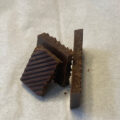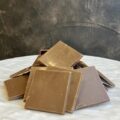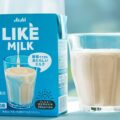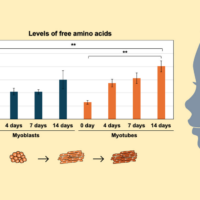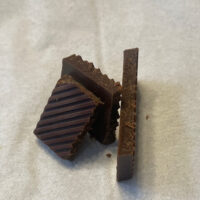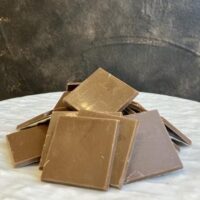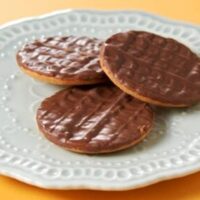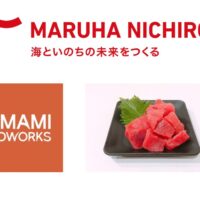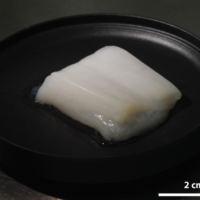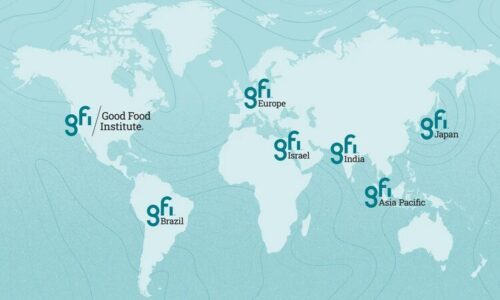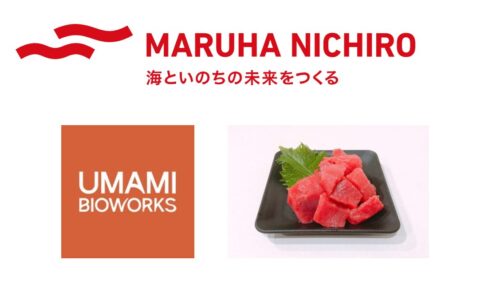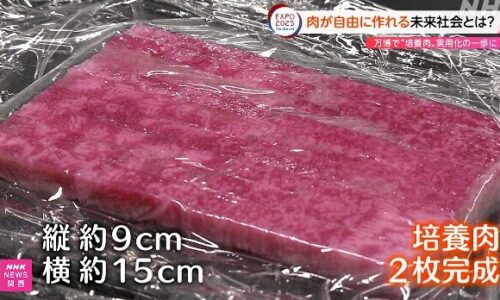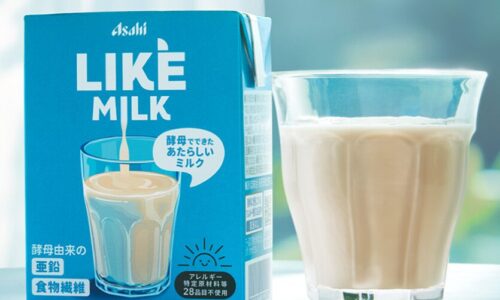Aeon Enters Cocoa-Free Market Following Ajikan’s “GOVOCE” and Fuji Oil’s “Anoza M”
On June 10, 2025, Japanese retail giant Aeon launched a new cocoa-free product called “チョコか?(Chococa? English means “Is this Chocolate?”)” made with ChoViva, a cocoa-free ingredient developed by the German startup Planet A Foods (formerly known as QOA). The decision was made in response to the ongoing surge in cocoa prices and concerns over supply stability.
The product is available in limited quantities at approximately 2,200 Aeon Group supermarket stores across Japan (excluding Okinawa), including Aeon, Aeon Style, and MaxValu locations. The retail price is 398 yen (excluding tax) for a 143g bag containing 12 pieces. (Contains milk and wheat.)
ChoViva is a cocoa alternative made by fermenting and roasting sunflower seeds and other ingredients, then grinding them in several stages into a powder, which is combined with plant-based oils to recreate the creamy, smooth texture of chocolate. In addition to ChoViva, Planet A Foods is also working on cocoa butter produced via precision fermentation.

Source: Aeon
Planet A Foods first introduced ChoViva in summer 2022 in the form of a limited-edition ice cream. By September 2023, the product had entered retail through German supermarket chain RWEW, later expanding its distribution online and to over 40,000 retail locations across Europe.
Chocolate ranks fifth in terms of greenhouse gas emissions per kilogram, following beef, lamb, cheese, and dairy cows. ChoViva was developed to offer a climate-conscious alternative that preserves the enjoyment of chocolate. Use of ChoViva reportedly reduces CO₂ emissions from the standard 5–19kg per kilogram to just 2.3kg.
As of March 2025, Planet A Foods offered 18 different ChoViva-based products, but expanded the lineup to over 30 within just three months.
The rapid adoption of ChoViva across Europe reflects several key factors: rising demand for low-climate-impact alternatives to cocoa, escalating cocoa prices, and upcoming EU regulations that will require all cocoa imports to originate from deforestation-free sources starting at the end of 2025.
“Cocoa Crisis” Drives Major Companies into the Market

Fuji Oil’s Anoza M Photo by Foovo/Ayumi Sato
Previously, the cocoa-free market was led by startups such as Planet A Foods, WinWin, Mez Foods, Forever Lands, Nukoko, and Fermtech. However, the recent “cocoa crisis” has prompted major companies in Japan and abroad to enter the space.
For example, on April 10, 2025, Barry Callebaut, a leading supplier of industrial chocolate, announced that it had introduced cocoa-free products made from sunflower seeds in the UK and Benelux markets (PDF pp. 3–4). According to Foovo’s investigation, while Barry Callebaut has previously offered dairy-free products, this marks its first launch of cocoa-free offerings. The supplier of the cocoa-free base remains undisclosed.
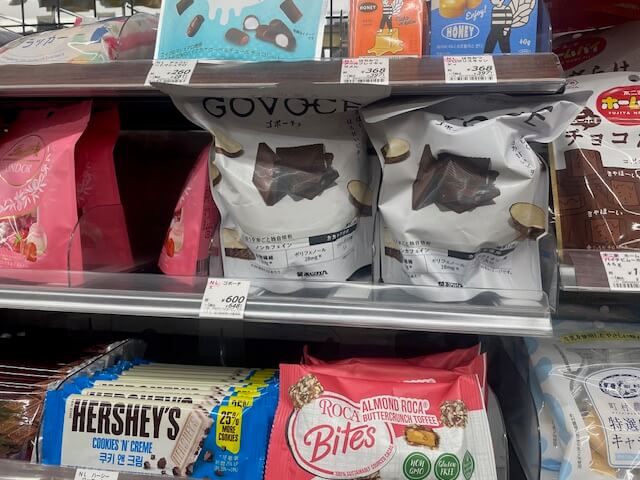
Photos by Foovo/Ayumi Sato, Natural Lawson in Tokyo
In Japan, Ahjikan’s GOVOCE, a cocoa-free chocolate made from roasted burdock, has been available at Natural Lawson stores in Tokyo since November last year.
In March this year, Fuji Oil launched Anoza M, a chocolate alternative made primarily from peas and carob. I had the chance to try it and found it to be of high quality.
Aeon’s recent move to adopt cocoa alternatives in response to the cocoa crisis may spur similar actions among other Japan’s food manufacturers. Although the current launch is limited in scale, broader rollout may follow depending on consumer response.
This article is an English translation of a Foovo article, published with permission from Foovo.
You may also LIKE
Photo Source: Aeon


